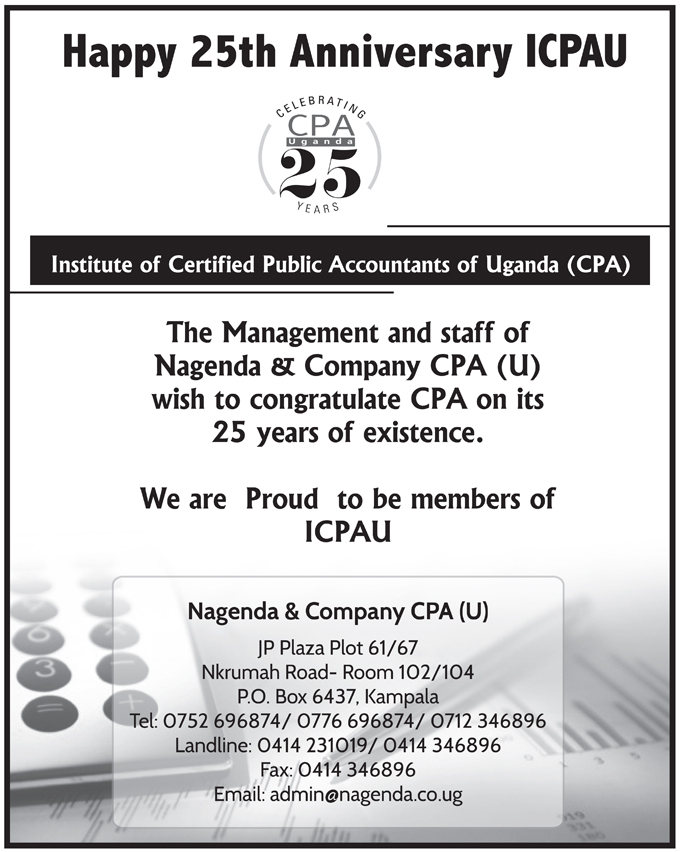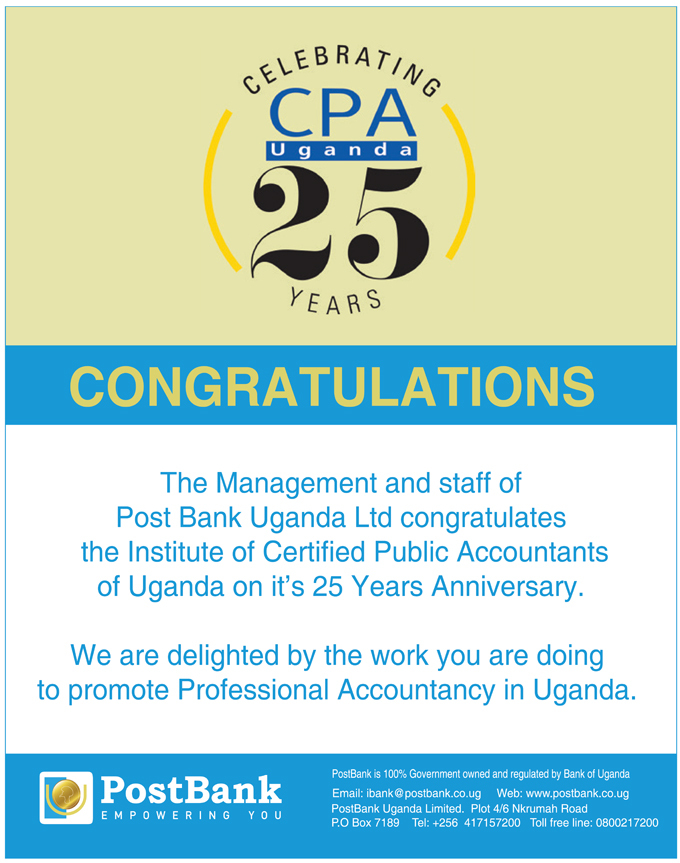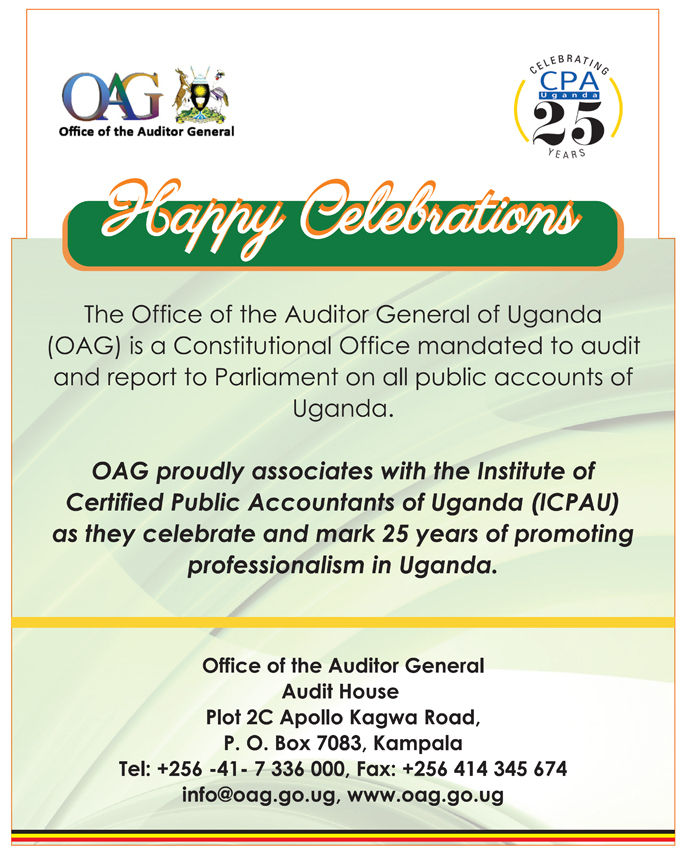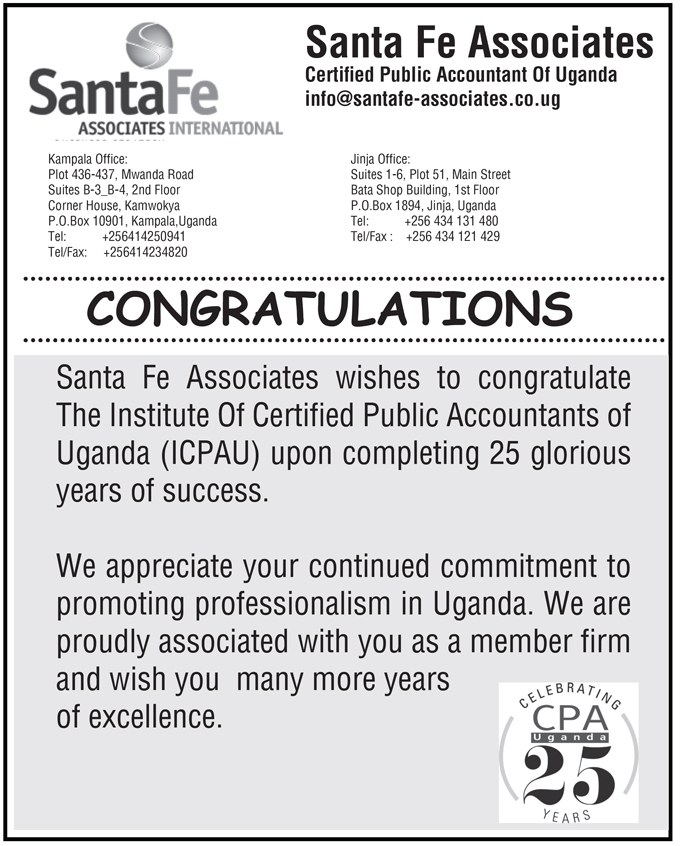ICPAU celebrates silver jubilee
Aug 07, 2017
Promoting accountancy in Uganda and beyond

ICPAU is Marking 25 years of excellence
By Edward Kayiwa
In 1989, Fred Ssembajwe travelled to Kenya's Strathmore College to pursue studies in Certified Public Accountancy (CPA), largely because the discipline was not offered at any Ugandan higher institution of learning.
Ssembajwe, like many Ugandans wishing to be certified accountants at the time, had to endure the two years in Kenya to see his dream come true. "Being away from home was hard, but we managed to make it.
I remember fondly that I graduated just one year away from the inception of the CPA course in Uganda, after an institute was established by order of government," he says.
The Institute of Certified Public Accountants (ICPAU) is a national professional accountancy organisation established in 1992 by an Act of Parliament to regulate and maintain the standard of accountancy in Uganda.
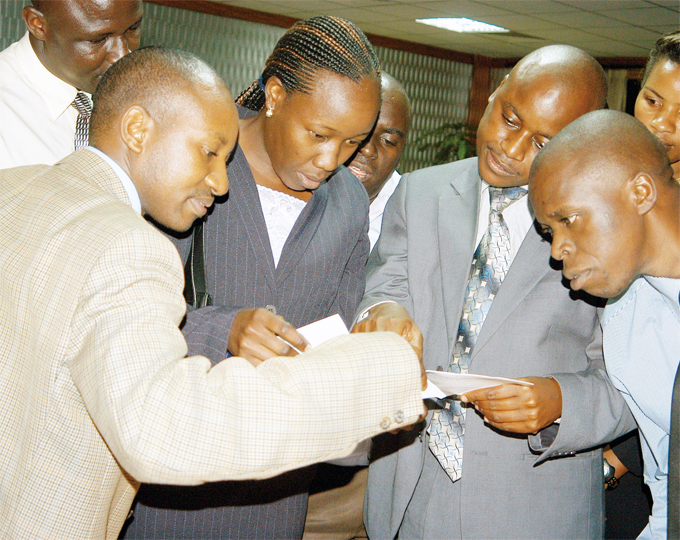 ICPAU graduating accountants checking for their results a few years ago
ICPAU graduating accountants checking for their results a few years ago
All previous accountants held foreign accountancy qualifications. A number of World Bank reports of past years indicate that the cost of training professional accountants in the country was high, mainly due to reliance on foreign professional courses and materials.
Role in economic growth
The development of ICPAU has helped to reduce the cost of training professional accountants in the country.
According to Protazio Begumisa, the ICPAU president, the country only had 79 certified accountants in 1992, when the institute was established, but the number has since grown to more than 2,500.
Of these, about 400 are employed by the Government in its various ministries, departments and agencies to improve efficiency and uphold professionalism in Government's accounting.
Over the years, the institute has benefited from a number of affiliations such as the International Federation of Accountants (IFAC), the Pan African Federation of Accountants and the Association for Educational Assessment in Africa (AEAA).
According to Begumisa, the institute has so far produced 1,923 professional accountants and 1,589 accounting technicians. CLICK HERE FOR MORE ON THIS STORY
ICPAU has changed accountancy work
Institute of Certified Public Accountants of Uganda (ICPAU), a body that regulates the accountancy profession in Uganda, turns 25 next week. Like the Law Council (for lawyers), Medical Council (doctors), ICPAU is an Act of Parliament. From a mere 79 members in 1992, the body has grown by leaps and bounds. Now boasting of more than 2,000 members, ICPAU has revolutionarised the accountancy landscape in the country. John Masaba spoke to the ICPAU CEO Derrick Nkajja about how the body has managed to navigate the challenges to reach this important milestone
As you mark your silver jubilee, can you briefly tell us what ICPAU's mandate in Uganda is?
Our major mandate is to regulate the standard of accountancy in Uganda. We prescribe and regulate the conduct and practice of accountants.
In doing so there are a range of things we do. One of those is through exams, which helps us to sieve the best out of the pool of those who join the profession every year.
We also have disciplinary component to rein in on errant accountants. In addition, we have a quality assurance board, which assesses the quality of practitioners from time to time.
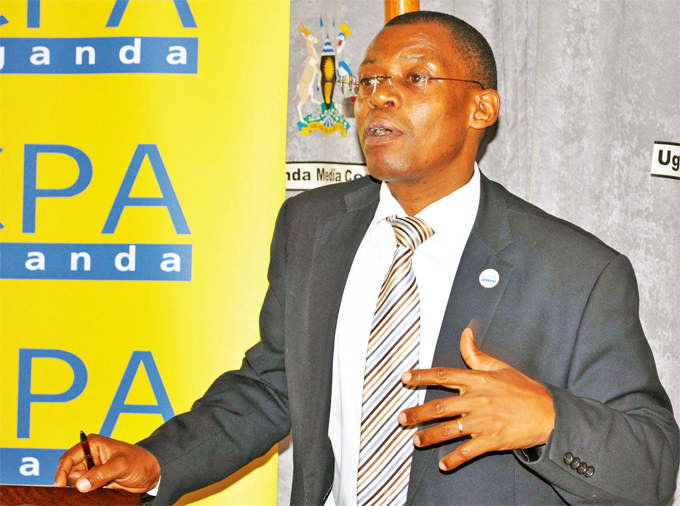 ICPAU Chief Executive Director Derrick Nkajja addressing journalists at Uganda Media Centre last Monday Photo by Shamim Saad
ICPAU Chief Executive Director Derrick Nkajja addressing journalists at Uganda Media Centre last Monday Photo by Shamim Saad
Must everyone become a member to practise accountancy?
No. But if you have to become an upright member, you must become a member of ICPAU. By becoming a member of ICPAU, it means you are willing to abide by the laws and code of ethics of the land.
It means you are committed to ensuring that you do not bring the profession to disrepute. But some people do not want to play by these rules.
We are seeing many becoming members of foreign associations because they know those bodies will not come to Uganda to investigate in case of misbehaviour.
So they can get away with wrong doing. That is why you have seen many cases of fraud in the media involving accountants lately. CLICK HERE FOR MORE ON THIS STORY
ICPAU presidents past and present
The idea of setting up an accountancy institute was conceived by the East African governments of Uganda, Tanzania and Kenya, in the 1960s.
This was shortly after the East African states had attained independence from colonial powers of that time. An Accountants Act was enacted in 1970, but due to the political upheavals of the 1970s, the Act never got the Presidential assent to effectively become an enabling law.
It remained on the shelves of Parliament until it was repealed in 1992 to pave way for a new Act. The Institute of Certifi ed Public Accountants of Uganda (ICPAU) was establishment after The Accountants Statute No. 12, now the Accountants Act, Cap. 266 of the Laws of Uganda enacted in August 1992.
This act was later replaced by the Accountants Act, no.19 of 2013 which empowered ICPAU with a greater sphere of control. Below are the former ICPAU presidents;
Interim Secretary CPA Ben Okello Luwum Tenure: Up to 1994 Profi le: Former minister of Lands from 1986 to 1990. He also served as Auditor General and is a Practitioner with BVL & Co. Certified public Accountants.
1st president CPA George William Egaddu Tenure: 1994 - 2001 Profile: Former Country Leader and Country Human Resources Partner at PricewaterhouseCoopers Uganda. He was also a senior partner at Coopers and Lybrand, Kampala. He is Chairman Board of trustees MTN Foundation, Chairman Barclays Bank Board. He is a Sole Practitioner at George Eggadu, Certifi ed Public Accountants.
2nd president CPA David Opio Okello Tenure: 2001 - 2007 Profi le: Former Bank of Uganda Deputy Governor, Board Chairman Housing Finance Bank. In his words: ICPAU has made a lot of progress in the last 25 years. Initially, nearly anyone was allowed to be a professional accountant, even chartered secretaries and administrators, which is not allowed around world - this took us a long time to change. CLICK HERE FOR MORE ON THIS STORY
ADVERTISER
INSTITUTE OF CERTIFIED PUBLIC ACCOUNTANTS OF UGANDA
